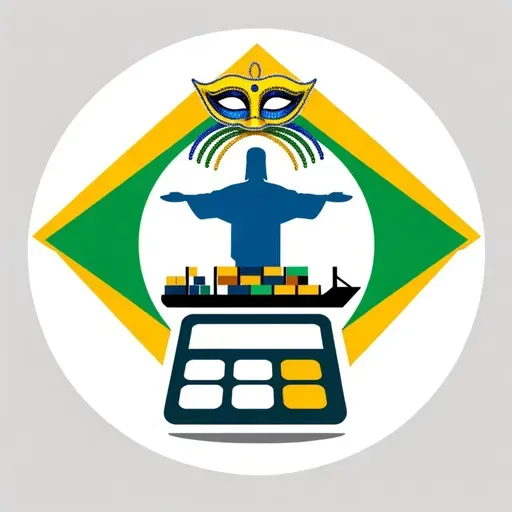
24 September 2025
US Imposes Massive 50% Tariff on Brazilian Imports Sparking Global Market Turmoil and Diplomatic Tensions
Brazil Tariff News and Tracker
About
Listeners, major headlines have emerged this September as the United States, under President Trump, imposed a sweeping 50% tariff on Brazilian imports—primarily targeting coffee and beef. According to Washington Times, the move, announced as a response to Brazil’s legal proceedings against former President Jair Bolsonaro, marks the single largest tariff escalation between the two nations in decades, sending immediate shockwaves through global commodity markets.
Coffee futures on the Intercontinental Exchange have surged to $288.67 per pound, with Arabica contracts registering near a 1% daily spike. According to AInvest News, U.S. retailers now face a 20.9% year-on-year jump in coffee prices, the highest since the 1990s. Brazil, which previously supplied over a third of American coffee blends, saw a 75% collapse in August exports to the United States. Brazilian exporters are scrambling to reroute shipments to Europe and Asia, already stressed by drought and climate volatility, exacerbating global supply shortages.
The tariffs are not only economic tools but carry a strong geopolitical message. Trump described the measures as retaliation for the so-called “politically motivated persecution” of Bolsonaro and for Brazil’s closer alignment with BRICS nations, particularly China. At the recent United Nations General Assembly, Brazilian President Luiz Inácio Lula da Silva publicly condemned U.S. tariffs and interventions but then found himself offered a surprise diplomatic olive branch—Trump proposed a meeting for next week, hinting at possible negotiations.
Markets reacted instantly. BR Partners (BRBI11), one of Brazil’s largest investment banks, plunged over 27% the day Trump announced the tariff threat, even as the broader Ibovespa stock index grew by more than 1%. The immediate market divergence is seen as a direct result of heightened trade risk, according to MarketMinute. The new tariff landscape is also layered atop Brazil’s already high Selic interest rate—now at 15%, a two-decade peak—posing further challenges for capital and investment markets. Brazilian meatpackers and commodity exporters predict multi-billion dollar revenue drops in the second half of 2025.
The U.S. Trade Representative cites discriminatory digital trade practices, lower tariffs to Chinese entities, and alleged unfair agricultural advantages as justification. Brazil, meanwhile, has invoked its Economic Reciprocity Law and hinted at possible countermeasures, though Lula’s government is keeping diplomatic channels open.
What does this mean moving forward? Analysts warn of sustained volatility in global commodity prices, tighter inventories, and an uncertain climate for Brazilian businesses and U.S. importers alike. The weaponization of tariffs for political signaling, combined with shifting alliances and economic recalibrations, underscores the need for close monitoring.
Thanks for tuning in. Don’t forget to subscribe for weekly updates and deeper dives. This has been a Quiet Please production, for more check out quietplease dot ai.
For more check out https://www.quietperiodplease.com/
Avoid ths tariff fee's and check out these deals https://amzn.to/4iaM94Q
This content was created in partnership and with the help of Artificial Intelligence AI
Coffee futures on the Intercontinental Exchange have surged to $288.67 per pound, with Arabica contracts registering near a 1% daily spike. According to AInvest News, U.S. retailers now face a 20.9% year-on-year jump in coffee prices, the highest since the 1990s. Brazil, which previously supplied over a third of American coffee blends, saw a 75% collapse in August exports to the United States. Brazilian exporters are scrambling to reroute shipments to Europe and Asia, already stressed by drought and climate volatility, exacerbating global supply shortages.
The tariffs are not only economic tools but carry a strong geopolitical message. Trump described the measures as retaliation for the so-called “politically motivated persecution” of Bolsonaro and for Brazil’s closer alignment with BRICS nations, particularly China. At the recent United Nations General Assembly, Brazilian President Luiz Inácio Lula da Silva publicly condemned U.S. tariffs and interventions but then found himself offered a surprise diplomatic olive branch—Trump proposed a meeting for next week, hinting at possible negotiations.
Markets reacted instantly. BR Partners (BRBI11), one of Brazil’s largest investment banks, plunged over 27% the day Trump announced the tariff threat, even as the broader Ibovespa stock index grew by more than 1%. The immediate market divergence is seen as a direct result of heightened trade risk, according to MarketMinute. The new tariff landscape is also layered atop Brazil’s already high Selic interest rate—now at 15%, a two-decade peak—posing further challenges for capital and investment markets. Brazilian meatpackers and commodity exporters predict multi-billion dollar revenue drops in the second half of 2025.
The U.S. Trade Representative cites discriminatory digital trade practices, lower tariffs to Chinese entities, and alleged unfair agricultural advantages as justification. Brazil, meanwhile, has invoked its Economic Reciprocity Law and hinted at possible countermeasures, though Lula’s government is keeping diplomatic channels open.
What does this mean moving forward? Analysts warn of sustained volatility in global commodity prices, tighter inventories, and an uncertain climate for Brazilian businesses and U.S. importers alike. The weaponization of tariffs for political signaling, combined with shifting alliances and economic recalibrations, underscores the need for close monitoring.
Thanks for tuning in. Don’t forget to subscribe for weekly updates and deeper dives. This has been a Quiet Please production, for more check out quietplease dot ai.
For more check out https://www.quietperiodplease.com/
Avoid ths tariff fee's and check out these deals https://amzn.to/4iaM94Q
This content was created in partnership and with the help of Artificial Intelligence AI